Immigration Services
We help businesses, families, and individuals navigate the immigration process and reach their goals
Corporations / Employees
Families
Individuals
Investors
Students
Victims
Immigration Services
Main Menu
U Visa
The U Nonimmigrant Status (or U-Visa as it is commonly known) is designed to protect the victims of certain crimes who have suffered physical or mental abuse and are actively providing assistance (or have previously provided such assistance) to government officials and law enforcement in the prosecution of criminal activity. In October 2000, Congress created the U-Visa with the passage of the Victims of Trafficking and Violence Protection Act. The purpose of this legislation was to benefit law enforcement agencies and their ability to investigate and prosecute cases of domestic violence, trafficking, sexual assault, and other such similar crimes while also protecting the victim of these crimes, who have suffered physical and/or mental harm resulting from the crime, and very often find themselves dealing with long-term impacts to their well-being and quality of life.

Qualifying Crimes
In order to be eligible for the U-Visa, the crime must be considered Qualifying, as described in this list:Abduction
Abusive Sexual Contact
Blackmail
Domestic Violence
Extortion
False Imprisonment
Female Genital Mutilation
Felonious Assault
Fraud in Foreign Labor Contracting
Hostage
Incest
Involuntary Servitude
Kidnapping
Manslaughter
Murder
Obstruction of Justice
Peonage
Perjury
Prostitution
Rape
Sexual Assault
Sexual Exploitation
Slave Trade
Stalking
Torture
Trafficking
Witness Tampering
Unlawful Criminal Restraint
Other Related Crimes, including any similar activity where the elements of the crime are substantially similar.
Eligibility
You are eligible for a U visa if:You are a victim of a qualifying crime or associated criminal activity;
You have suffered an appreciable degree of mental and/or physical abuse as a result of the crime;
You have information about the crime/criminal activity (for applicants younger than 16 years of age and those unable to provide active assistance to law enforcement because of a disability, a guardian or parent may provide information about the crime on their behalf);
You agree to assist law enforcement in the investigation of the crime, to the degree it is required;
The crime violated US laws or occurred in the US;
You are admissible to the US under USCIS standards (and in case where you aren’t admissible for whatever reason, you can apply for that condition to be suspended by filing Waiver Form I-192, Application for Advance Permission to Enter as a Nonimmigrant).
If you are a victim of a criminal activity, we urge you to contact a U-Visa attorney at Rijal Law Firm. Our attorneys have extensive experience in pursuing these cases with care and discretion, and can advise you about your circumstances and situation so as to arrive at the best possible outcome for you.
How To Apply for U Visa
To apply for the U visa follow these steps:1. Contact the Police Department where the crime occurred and request that an authorized party complete and sign Form I-918, Supplement B, U Nonimmigrant Status Certification. The official will need to ratify the nature of the crime while also certifying that the petitioner provided sufficient assistance to the investigation and prosecution of the case. This document is vital, and should be processed by a qualified, experienced attorney, as there are numerous potential complications in securing this document that can delay or even compromise the entire application if handled improperly.
2. File both Form I-918, Petition for U Nonimmigrant Status and the certified, signed original of Form I-918, Supplement B, U Nonimmigrant Status Certification.
3. If there are any inadmissibility issues, file Waiver Form I-192, Application for Advance Permission to Enter as Nonimmigrant. Supporting documentation should be filed along with this Waiver, including letters attesting to the petitioner’s good character and evidence of community volunteering, mentorship, support, etc.
4. File supporting affidavits from people who either witnessed the crime or can attest to the impact the crime had on the victim (so someone with a personal relationship who has known the petitioner both before the crime occurred and after).
5. File statutory evidence demonstrating why the crime, as described by the authorized signatory in Form I-918 Supplement B, qualifies under the U-Visa statute. Copies of the initial police report and any available investigatory materials should also be included here
You can file for a U-Visa even if you are currently outside the US by doing as follows:
1. File the forms necessary for the U-Visa with the Vermont Service Center.
2. Follow the instructions carefully sent from Vermont Service Center.
3. Update your biometrics at the nearest US embassy.
4. Complete the petition and then follow the consular process to enter the US.
As this is a complicated process that relies on both specific legal knowledge and the ability to both identify the authorized signatory for Form I-918 Supplement B and get it completed and returned by that individual, the services of a qualified legal professional like those here at Rijal Law Firm are highly recommended.
Which agencies may complete the certification?
TThe agencies that commonly certify U-Visa petitions are the federal law enforcement, state and local police department, and District Attorneys’ Offices and the prosecutors who work there. In rare cases a Judge can sign the U-Visa certification, though in most instances they will prefer to avoid showing bias for the prosecution.Additionally, state and federal agencies that have the responsibility for investigating or prosecuting these sorts of qualifying criminal activity or crimes can also help in completing the certification.
How can an attorney help you through the certification process?
Following recently updated guidelines for law enforcement, some agencies are less willing to issue a certification because they do not wish to participate in the U-Visa program. Prosecutors or police officers might try to take advantage of your need for a certification so as to coerce cooperation from the victim that is beyond the scope of the qualifying crime (by pressuring them to take part in an undercover sting operation, for example).Having an experienced U-Visa attorney on your side if therefore of particular importance in these cases. They will help you negotiate and communicate with law enforcement officials and can coordinate with victims’ advocates in certain instances.
Filing for Family Members
Certain qualifying family members are eligible to apply for U-Visa status based on their relationship with the petitioner. The petitioner must receive their U-Visa approval before the family members can be eligible for U-Visa derivative status:If you are under 21 years of age you may petition on behalf of your children, spouse, parents, and siblings below the age of 18 years.
If you are over 21 years of age you might petition on behalf of your children and spouse.
Adjustment of status
You may be eligible to apply for the Adjustment of status if you meet certain requirements such as:You have been physically present in the US for three years continuously while in the U nonimmigrant status
You have not been ruled inadmissible previously.
Call Rijal Law Firm today and schedule a consultation with an experienced attorney who will assist you in obtaining certification of assistance to law enforcement, preparing and submitting the various affidavits that help establish your case, and arranging for a mental health evaluation if requested and if one has not been completed previously.
